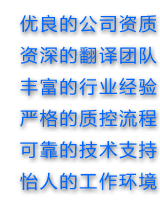台菲麻烦海洋Banyan: Seas of troubles
Seas of troubles
麻烦海洋
Taiwan and China share the same maritime claims, but have very different interests
台湾和中国有着一致的海权主张,却有着不同的利益
IN THE convoluted dramas in the seas around China, Taiwan is often cast as a bit player, the optional extra to the lengthy lists of contending parties to the many territorial disputes. But the fatal shooting on May 9th of a 65-year-old Taiwanese fisherman by the Philippine coastguard has shifted Taiwan to centre stage. The killing provoked a crisis in its relations with an important economic partner that happens also to be a treaty ally of America—the ultimate guarantor of Taiwan’s own defence. In the bigger picture, its involvement in such disputes inevitably draws attention to the island’s unsettled international status, and to the future of its relations with China.
在中国周边海权纷争这场大戏中,台湾一直都是一个不起眼的角色。5月9日,一个65岁台湾渔民被菲律宾海岸警卫队射杀这一事件的发生,把台湾推到了这个舞台的中间。引发了它与菲律宾的危机,菲律宾是台湾重要的经济伙伴,同时也是美国的盟友,而美国又是台湾安防的最重要守护者。从大局来看,更引人注目的是台湾不清晰的国际地位以及它和中国关系的将来
Because China bars Taiwan from international treaties, Taiwan cannot ratify the United Nations Convention on the Law of the Sea (UNCLOS). But it follows the convention’s principles. The shooting took place 164 nautical miles (about 300km) south-east of Taiwan, where the “exclusive economic zone” it would be entitled to under UNCLOS overlaps with that of the Philippines.
因为中国不允许台湾加入任何国际公约,台湾虽无法援引联合国海洋法公约(UNCLOS)的权利,但遵循其原则。射杀事件发生在台湾东南164海里(约300公里)处,即UNCLOS认定的任何主权国家所享有的”专属经济区“,这同时也是菲律宾的“专属经济区”。
Taiwan’s fishing fleet has a reputation as voracious, and in this incident the Philippines said its coastguard was acting against illegal fishing; it opened fire to disable the engine of a Taiwanese vessel after it tried to ram a Philippine cutter. Taiwanese officials said the dead man was unarmed, and his boat was riddled with bullet holes. The public, whipped up by a tub-thumping press, was outraged. The government demanded an apology, an inquiry and compensation and imposed tough sanctions, including a freeze on the hiring of Filipino workers and the recall of ambassadors. It has conducted a naval drill in the contested waters. Meanwhile, hackers from both countries mounted cyber attacks on the other’s official websites. The Philippines’ first apologies were rejected as “insincere”, though one came from an envoy appointed by President Benigno Aquino and seemed abject.
台湾船队以贪婪著称。在这起事件中,菲律宾称其海岸警卫队是对非法捕鱼的执法,在台湾渔船试图冲撞其执法快艇后,他们向台湾渔船引擎开枪试图使其失去动力。台湾官员称死者没有武装,其渔船布满弹孔。民众在其媒体大肆宣扬下异常愤怒。政府要求道歉,调查和赔偿,并且实施了严厉的制裁,包括暂停雇佣菲律宾工人以及召回大使。并且在有争议水域进行了军演。目前双方的黑客正在实施对对方政府网站的攻击。菲律宾的第一次道歉被以“不真诚”的原因拒绝,其后派出的总统特使,在台湾的遭遇也很可怜。
China helped fan Taiwan’s fury. Its foreign ministry was quick to condemn the “barbaric act”. The reliably bellicose Global Times, a Communist Party paper, dutifully recalled that Taiwan is in China’s eyes a province-in-waiting, deserving of its protection. The paper quoted Zhuang Guotu of Xiamen University, just over the strait from Taiwan: “China has reiterated over time that Taiwan is an integral part of China. Now is a good opportunity to show that China will not tolerate the shooting of our fishermen, whether they are from the mainland or Taiwan, and that our government is determined to protect the life of its people.”
中国对台湾的愤怒扇风点火。其外交部快速的谴责了这次”野蛮行径“。非常好斗的共产党报纸”环球时报“,政治正确的指出台湾作为中国一个尚未收回的省,理应得到中国的保护。它引述了台湾海峡对岸的厦门大学的庄国图的话“中国多次重声台湾是中国不可分割的一部分,现在是一个很好的机会展示中国不会允许射杀其渔民,无论是大陆的还是台湾的,政府都有决心保护人民的生命”
Taiwan’s president, Ma Ying-jeou, has presided over a big improvement in relations with China, through increased trade and tourism. But that has not brought much sympathy in Taiwan for any kind of Chinese security umbrella, let alone unification. And in another dispute—over the five, Japanese-controlled islands in the East China Sea known as the Senkaku islands in Japanese and the Diaoyu in Chinese—Taiwan has incurred China’s wrath.
台湾总统马英九,在其任内通过贸易和旅游大大改善了和中国的关系,但这并未使台湾人民同意处于中国的保护伞之下,更别提统一了。台湾在处理与日本在东中国海控制的岛屿的问题时,也让中国生气了。日本称之为尖阁列岛,中国称之为钓鱼岛。
In China’s view, the uninhabited islands are a historical part of what was the Taiwan prefecture of Fujian province (and, from 1887-95, the province of Taiwan). Taiwan and the islands it controlled were snatched from the declining Qing empire in 1895 as war booty by an ascendant Japan. China argues the islands should have been returned to it on Japan’s defeat in 1945. Japan, however, regards the Senkakus as part of the Okinawa (formerly the Ryukyu) chain, and says they were unclaimed by any power until it “discovered” them in 1884. (China’s People’s Daily has raised doubts as to whether even this interpretation of history would give Japan sovereignty, questioning its claim to all the Ryukyus, the modern-day Okinawa prefecture).
在中国看来,这片无人群岛是福建省辖下的台湾的一部分(在1887-95年,属于台湾省)。在1895年日本从衰败的清朝手中占夺了台湾及其岛屿。中国认为日本应于1945战败时归还这个岛屿。但日本认为由于尖阁列岛属于冲绳(琉球)岛链的一部分,并且1884年前没有任何国家”发现“并声称拥有对这个岛屿的主权。(中国人民日报对此提出质疑,认为这样的历史解释不一定给予日本主权,质疑其对琉球,也就是整个冲绳省的主权)
So Taiwan was among the fiercest opponents of the Japanese government’s “nationalisation” last year of three of the islands by buying them from their private owner. Last September the Taiwanese coastguard fought a rather silly water-cannon battle with Japan’s near the islands. But last month, to China’s fury, Taiwan cut a deal with Japan, allowing both countries’ fleets to fish in the waters round the islands. It was a reminder that, for all its ardent nationalism, Taiwan has close ties to Japan—which occupied it for 50 years—and also that it pursues its own interests, not those of the Chinese “motherland”.
日本政府去年从私人手中购买了三个岛屿,对钓鱼岛进行了”国有化“,台湾当时强烈反对,去年9月台湾海岸警卫队和日本在该岛屿附近进行了愚蠢的水炮战。但上个月,台湾和日本搞了个协议,允许双方的渔船在该岛屿附近捕鱼,这又激怒了中国。让中国的民族主义者看到,台湾和占领了它50年的日本有着更紧密的关系,同时台湾追求自己的利益,而非其中国“母亲”的利益。
My country, which is thee?
祖国啊,你是谁?
Worryingly for China, the emotions now on display are driven by patriotism for Taiwan, not China. The biggest reason the first apologies from the Philippines were dismissed was that they did not formally come from the government, because of its “one China” policy of recognising only the government in Beijing. Resentment at this in Taiwan unites both Mr Ma’s relatively pro-China ruling party, the Kuomintang (KMT), and the opposition Democratic Progressive Party (DPP), which favours formal independence for Taiwan. The DPP also supports the government’s claims to territory that historically had nothing to do with Taiwan, except as the seat of the KMT government after it lost the civil war to the Communists in 1949. Taiwan adheres to the same vague “nine-dashed line” claim as China, asserting sovereignty over almost all the South China Sea. It has a garrison on the largest island in the Spratly chain in that sea. Last year, the DPP accused Mr Ma of a wimpish reaction when China declared that it had set up an administrative structure for the sea.
值得中国担忧的是,事件中的爱国主义爱的是台湾,而不是中国。菲律宾的第一次道歉被拒绝的原因主要是由于道歉并非来自官方,因为菲律宾的“一个中国”的政策只承认北京政府。对此问题的怨恨情绪团结了马英九亲中的国民党和倾向台湾正式独立的反对党民进党。民进党也支持政府主张那些1949年前历史上和台湾无关的海域的权利,1949年国民党内战败于共产党定都台湾。台湾声称拥有和中国模糊的9段线一样几乎涵盖全部南中国海的主权,它在南沙群岛上最大的岛屿拥有驻地。去年民进党指责马政权对中国在该海域设立行政架构的反应软弱。
Just as it has long tolerated Taiwan’s control of tiny islands just off the mainland, so China probably welcomes Taiwan’s bizarre claim to the South China Sea. Taiwan’s government has long discarded most of the fictions that used to sustain its claim to legitimacy over all of China: parliamentary seats for mainland constituencies, government bodies planning for the reconquest, and so on. That Taiwan and China make the same territorial claims is a last vestige of a shared “one China” outlook. Yet its handling of the row with the Philippines shows how even a “pro-China” government in Taiwan in fact believes in “one China, one Taiwan”.
中国能容忍台湾岛长期保持在大陆的控制之外,也许也能够接受台湾对南中国海的主权申索。台湾也长期不再提起那些伸张其拥有对整个中国的合法统治权的因素,比如国会中的大陆选区议席,进行反攻大陆计划的政府部门等等。”一个中国“也就只能体现在双方重叠的主权主张这一点上。但在处理菲律宾事件上来看,亲中的台湾政府仍然信奉“一中,一台”
白城翻译公司推荐阅读













